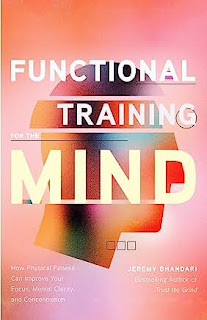Abstract
Mental mind chess is a form of mental exercise that involves playing chess in your head. It is a great way to improve your strategic thinking skills, your problem-solving skills, and your concentration.
The psychology of mental mind chess is complex, but there are a few key factors that are important to mastering the mental game. These factors include visualization, concentration, and mental toughness.
Visualization is the ability to see the chessboard in your head. This is essential for playing mental mind chess effectively, as it allows you to plan your moves and anticipate your opponent's moves.
Concentration is also essential for playing mental mind chess. You need to be able to focus on the game and block out distractions. This can be difficult, but it is essential for making good decisions.
Mental toughness is also important for playing mental mind chess. You need to be able to handle setbacks and keep going. You need to be able to stay positive and motivated, even when you are losing.
If you want to master the mental game of mental mind chess, there are a few things you can do. First, you need to practice regularly. The more you practice, the better you will become at visualizing the board and making decisions.
Second, you need to find a way to stay focused and motivated. This could mean finding a partner to play with, or setting goals for yourself.
Finally, you need to be patient. It takes time and practice to master the mental game of mental mind chess.
If you are willing to put in the effort, mental mind chess can be a great way to improve your cognitive skills and your mental toughness. It can also be a lot of fun!
Article
Mental mind chess is a form of mental exercise that involves playing chess in your head. It is a great way to improve your strategic thinking skills, your problem-solving skills, and your concentration.
There are many different aspects to the psychology of mental mind chess. One important aspect is **visualization**. When you are playing mental mind chess, you need to be able to visualize the board in your head. You need to be able to see the pieces and their positions, and you need to be able to see how they move.
Another important aspect of mental mind chess is **concentration**. You need to be able to focus on the game and block out distractions. You need to be able to think clearly and make decisions without getting flustered.
Book: Functional Training for the Mind: How Physical Fitness Can Improve Your Focus, Mental Clarity, and Concentration (Mind Body Connection, Your Body is Your Brain, Body Aware): https://amzn.to/3NVCMu7
Finally, mental mind chess also requires **mental toughness**. You need to be able to handle setbacks and keep going. You need to be able to stay positive and motivated, even when you are losing.
If you want to master the mental game of mental mind chess, there are a few things you can do. First, you need to practice regularly. The more you practice, the better you will become at visualizing the board and making decisions.
Second, you need to find a way to stay focused and motivated. This could mean finding a partner to play with, or setting goals for yourself.
Finally, you need to be patient. It takes time and practice to master the mental game of mental mind chess.
If you are willing to put in the effort, mental mind chess can be a great way to improve your cognitive skills and your mental toughness. It can also be a lot of fun!
**Here are some additional tips for mastering the mental game of mental mind chess:**
* Start with simple games and gradually increase the difficulty level.
* Set aside specific times each day to practice.
* Find a quiet place where you won't be interrupted.
* Take breaks if you start to get frustrated.
* Reward yourself for your progress.
With practice and dedication, you can become a master of mental mind chess!






